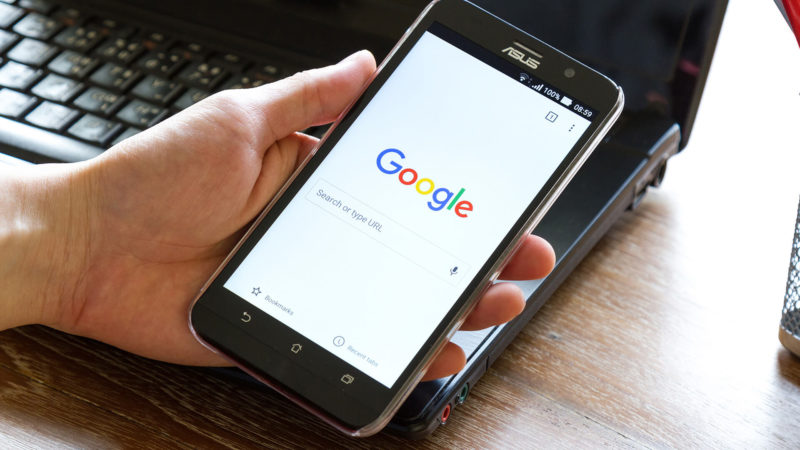Google Enables Cross-Platform Local Search (As Carrot To Relinquish Your Privacy)
Google is enabling people to gain access to PC search histories on their mobile browsers (Android, iPhone). Conduct a (local) search on the PC and later get the information on your smartphone — if you’re logged in and have Web History enabled. Google says this makes it convenient for people to search for local places […]
Google is enabling people to gain access to PC search histories on their mobile browsers (Android, iPhone). Conduct a (local) search on the PC and later get the information on your smartphone — if you’re logged in and have Web History enabled. Google says this makes it convenient for people to search for local places on their computers and then return to that information on the go.
A new “recent” icon will appear on the Google.com homepage of your mobile browser that will quickly tap into this recent history. Your local search history will be available “for about a day,” as Google explains in its blog post:
We provide this new convenience feature for users who have Web History enabled and are logged into Google when doing their search. Start by searching for a place on your PC or other devices, then login to Google.com’s mobile homepage and check the Recent icon. Information about previously searched places will be available under the Recent icon for about a day.
While this could apply theoretically to any and all search history Google seems to be limiting it to local search data. Because this isn’t yet live for me I wasn’t able to test it and see how much search history is captured and made available.
There are two views of this move. The first (non-cynical) view is that this capability is very useful and parallels the way people actually move from PCs to mobile devices. A less “optimistic” assessment is that Google is providing some useful functionality as an incentive to get users to give up their privacy and better enable Google to target them across platforms.
Both are true.
This is all part of a larger effort on Google’s part to capture as much user data as possible and link that data from PC to mobile to have a more holistic view of users and their behaviors.
Contributing authors are invited to create content for Search Engine Land and are chosen for their expertise and contribution to the search community. Our contributors work under the oversight of the editorial staff and contributions are checked for quality and relevance to our readers. The opinions they express are their own.
Related stories
